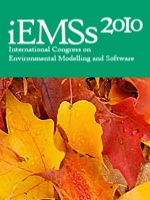Methods for semantic annotation of an integrated assessment tool for agricultural systems
Abstract
Semantic annotation based on ontologies has been proposed as a method to achieve integration in multi-disciplinary and multi-scale integrated assessment tools. In the development of an integrated assessment tool, SEAMLESS-IF, agricultural models, data sources, scenarios and indicators had to be integrated in one conceptual schema, providing the shared definition of concepts and their relationships. This paper describes the different methods used in the semantic annotation of the various elements (i.e. models, data sources, scenarios and indicators) in the SEAMLESS-IF. By contrasting the methods, this paper argues that the method used for semantic annotation has to be flexibly adapted to the element and the researchers involved. Common aspects in the semantic annotation were that i. it was organized in several prototypes, which where gradual improved; ii. the editing of the ontology itself was done by knowledge engineer and not by a whole community of researchers and iii. a collaborative approach was used to discuss ontology content between domain experts and knowledge engineers. To succeed in building coherent and comprehensive ontologies, these general principles need to be adopted to the case (i.e. researchers, available information, annotation question).
Download full text in pdf format
 Published as:
Published as:
S. Janssen,
I. N. Athanasiadis,
E. Andersen,
A. E. Rizzoli,
J.-E. J. Wien,
M. K. van Ittersum,
Methods for semantic annotation of an integrated assessment tool for agricultural systems,
5th Intl Congress on Environmental Modelling and Software (iEMSs 2010),
2010, International Environmental Modelling and Software Society (iEMSs).
You might also enjoy (View all publications)
- BloomBench: A Multi-Species Benchmark for Evaluating the Generalization of Fruit Tree Phenology Models
- Corn yield estimation under extreme climate stress with knowledge-encoded deep learning
- Causal machine learning methods for understanding land use and land cover change
